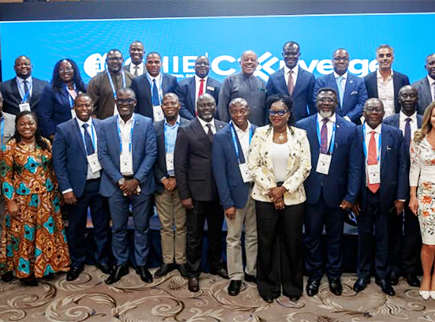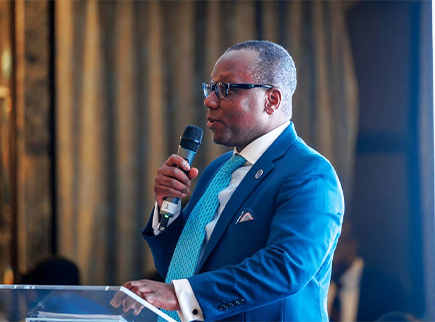Mr Dean Adansi, Chief Executive Officer (CEO) of Ghana International Bank (GHIB), has set out a financing blueprint to shift Africa’s commodity trade from raw exports to value-added products.
He argued that the current export model was leaving billions of dollars in potential earnings on the table.
He said Africa’s share of global trade remains under three per cent, in part because of a persistent trade finance gap that leaves exporters unable to invest in local processing.
Mr Adansi was speaking at the Ghana International Bank (GHIB) CONVERGE 2025 Conference in London.
He said, “Interest rates are significantly higher than in the West in many African countries, making it very difficult for smaller entities with short-track records to obtain the financing they need to export commodities, or even to industrialise locally.”
Mr. Adansi said the causes were structural: shallow capital markets, expensive working capital, and limited regulatory and infrastructure support.

He stressed that for every US$1 of trade, there was a US$1.70 impact on GDP, meaning that closing a US$80 billion trade finance gap in sub-Saharan Africa could generate an additional US$133 billion annually.
“The consequences are significant; in jobs, in revenues, and in building the local savings needed to strengthen domestic capital markets,” he added.
Mr. Adansi said GHIB, operating from London for the past 65 years, was working with local financial institutions in West Africa to build capacity and make them more attractive to larger international lenders.
This, he argued, created a sustainable cycle in which local banks can then support SMEs and smaller exporters.
Over the past five years, the Ghanaian-owned bank has facilitated more than US$14 billion in total trade flows, including US$10.6 billion in documentary trade collections and US$2.7 billion in primary trade finance transactions across Sub-Saharan Africa.
Downstream payments to West Africa in 2024 alone exceeded US$8.5 billion.
Mr. Adansi stressed that financing remained the main bottleneck to processing. Processing plants need substantial upfront capital, longer repayment periods, and different risk assessments than standard commodity trade deals.
“Traditional banking products are rarely designed to support multi-year investment cycles in processing,” he said.

